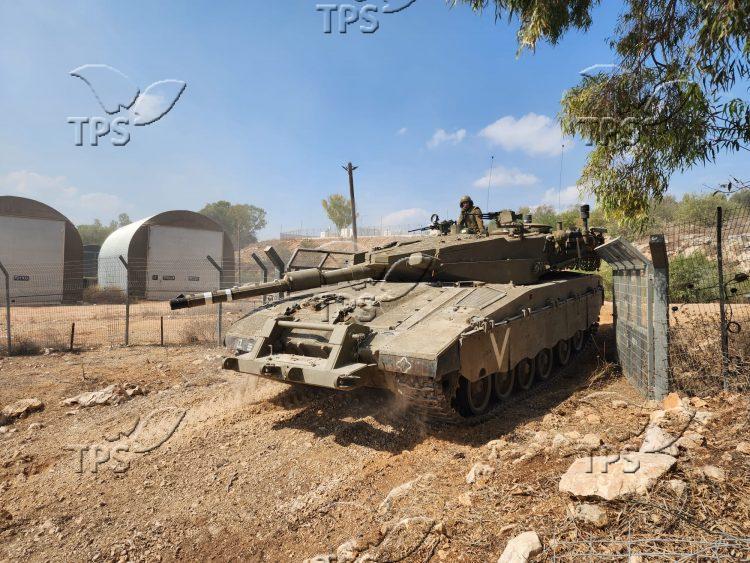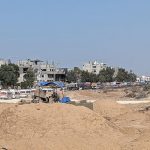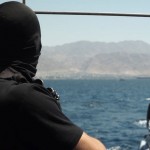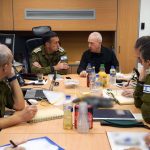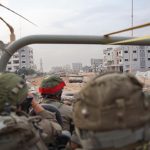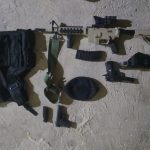Israel on Alert on Explosive Northern Front as Hezbollah Lurks
Jerusalem, 1 December, 2023 (TPS) -- As Israel prepares for the strong possibility of a resumption of war against Hamas in the Gaza Strip, the Israeli Defense Forces is also currently in a heightened state of alert and preparedness along the border with Lebanon, responding to the continuous threats posed by Hezbollah.
Since Oct. 7, the IDF has deployed significant military resources, including artillery, tanks and engineering corps, along the Lebanese border, striking Hezbollah anti-tank missile squads and other terrorists whenever they are detected, either after an attack or preparing for one.
This low-intensity conflict when compared to Gaza has resulted in some 90 casualties for Hezbollah and nine Israeli casualties—six military personnel and three civilians.
Several Israeli homes and military bases have sustained heavy damage from Hezbollah strikes since Oct. 7, and tens of thousands of Israeli residents from areas near the border with Lebanon remain evacuated, displaced from their homes by the threat of the Hezbollah’s elite Radwan terrorist unit.
In response, the IDF has employed a defensive-responsive posture aimed at protecting Israeli territory from Hezbollah’s aggression but not escalating the situation into a full-scale war front at this time.
Its approach is characterized by a reactive rather than proactive stance. Operations are tailored to respond to specific threats and attacks from Hezbollah, avoiding initiating aggression. This goal remains to protect civilian lives and property, as well as to make sure that Hezbollah cannot surprise the north as Hamas did the south.
But the decision of any expanded war efforts in Lebanon remains up to the war cabinet.
Hezbollah’s tactics, meanwhile, involve embedding its operations within Lebanese civilian areas; using southern Shi’ite villages as bases of attack; firing anti-tank missiles at Israeli northern homes and military positions; and continuing to pose a serious and persistent threat.
The question of whether the 8,000-man Radwan unit, which has murder and kidnap squads much like Hamas’s Nukhba unit, could breach the Israeli border and conduct attacks has no clear answer at this time, although the IDF is present at the border in large numbers and has proven effective at detecting Radwan unit movements in real-time.
Hezbollah’s terror tactics not only endanger Lebanese civilians but are designed to complicate the IDF’s response—a familiar use of human shielding that Hamas employs as well in Gaza.
In this explosive situation, the IDF currently exercises restraint in its counterstrikes, relying on precise intelligence to target terrorist threats while minimizing civilian casualties and collateral damage.
Ineffective UNIFIL
The role of the United Nations Interim Force in Lebanon (UNIFIL) in challenging Hezbollah’s flagrant violation of U.N. Security Council Resolution 1701, which bans Hezbollah from operating in Southern Lebanon, is nonexistent.
Worse yet, Hezbollah has been actively using UNIFIL as human shields, launching attacks on Israel in some cases from tens of meters from UNIFIL positions.
UNIFIL’s ineffectiveness in curbing Hezbollah’s activities is self-evident, highlighting the limitations of international peacekeeping forces in such scenarios.
Despite this, the IDF continues to remain in contact with UNIFIL and has been transmitting its concern over Hezbollah’s destabilizing activities with no tangible results.
So far, Israel’s policy on the Lebanon border is a delicate balance between essential defense and cautious restraint. But it remains unclear how long this can continue since northern residents will not return to a persistent Hezbollah threat to their lives in the new, post-Oct. 7 reality, and the IDF cannot remain fully deployed in the north indefinitely.
The result is a paradox that appears to suggest difficult decisions in the future by the Israeli war cabinet if the north is to be sustainable and its residents granted a new sense of security.

